Introduction
The ASTM B221M standard serves as a crucial framework governing the production and quality assurance of aluminum and aluminum-alloy extruded products in metric units. Widely applied in diverse sectors like aerospace, construction, and manufacturing, this standard ensures adherence to rigorous quality and performance standards. This comprehensive guide aims to provide an in-depth insight into the ASTM B221M standard, delineating its key sections and underscoring its significance in the aluminum industry.
Overview and Scope
Encompassing a broad array of aluminum products such as bars, rods, wire, profiles, and tubes, ASTM B221M delineates essential aspects including chemical composition, mechanical properties, heat treatment, and quality assurance requirements. Serving as the metric counterpart of ASTM B221, it promotes global applicability and consistency. The standard falls within the purview of ASTM Committee B07 on Light Metals and Alloys and is overseen by Subcommittee B07.03 on Aluminum Alloy Wrought Products.
Key Sections of ASTM B221M
- Referenced Documents: This section references several other ASTM standards and practices, ensuring comprehensive coverage of all facets of aluminum product manufacturing and testing.
- Chemical Composition: Table 1 of ASTM B221M specifies the chemical composition limits for various aluminum alloys, ensuring material purity and meeting alloying element specifications. Methods outlined in ASTM standards E34, E607, and E1251 are employed for precise determination of chemical composition.
- Mechanical Properties: Table 2 delineates tensile properties such as strength and elongation for different alloys and tempers, ensuring material suitability for specific applications. Testing methods per ASTM B557M involve applying loads until fracture to accurately determine mechanical properties.
- Heat Treatment: The standard specifies heat treatment processes for achieving desired mechanical properties for different tempers, as detailed in AMS 2772 and ASTM B918. Heat treatment parameters are crucial for microstructure control and defect minimization.
- Quality Assurance: Producers are tasked with inspection and test requirements, with defined lot sizes and sample numbers outlined in the standard. Quality assurance involves sampling, testing, and inspection to ensure material conformity and defect mitigation.
- Dimensional Tolerances: Permissible variations from specified dimensions are detailed in ANSI H35.2M, ensuring dimensional accuracy essential for proper fit and function in applications.
- Identification and Marking: Materials must be marked for identification and traceability per ASTM B666/B666M, aiding in quality control and batch verification.
- Packaging and Shipping: Packaging requirements outlined in ASTM B660 ensure material protection during handling and transportation, contributing to the preservation of material integrity.
Detailed Exploration of Key Sections
- Chemical Composition: Accurate determination of chemical composition ensures material integrity and performance consistency across batches. Methods outlined in ASTM standards are relied upon for precise analysis.
- Mechanical Properties: Defined mechanical properties enable the selection of suitable materials for specific applications, ensuring reliability and safety. Testing procedures adhere strictly to ASTM guidelines for consistency and accuracy.
- Heat Treatment: Precise heat treatment processes influence material properties, enhancing mechanical performance and overall quality. Adherence to AMS and ASTM specifications guarantees proper treatment procedures.
- Quality Assurance: Thorough quality assurance processes mitigate defects, ensuring compliance with specified requirements and enhancing product reliability. Producers follow ASTM guidelines meticulously to maintain product quality.
- Dimensional Tolerances: Adherence to dimensional tolerances guarantees proper fit and function, crucial for the functionality of manufactured components. ANSI standards serve as the benchmark for dimensional accuracy.
- Identification and Marking: Clear identification and marking facilitate traceability and quality control, ensuring product authenticity and batch verification. Compliance with ASTM standards is essential for accurate marking practices.
- Packaging and Shipping: Appropriate packaging safeguards material integrity during transit, minimizing the risk of damage or deterioration. Producers follow ASTM guidelines to ensure proper packaging methods are employed.
Importance of ASTM B221M
The ASTM B221M standard is pivotal in maintaining the quality and performance of aluminum products, ensuring compliance with stringent requirements for critical applications. It also facilitates international trade by providing a common framework for specifying and testing aluminum products.
Industry Applications
- Aerospace Industry: Aluminum alloys meeting ASTM B221M standards are crucial for aerospace applications, ensuring structural integrity and reliability in aircraft components. Compliance with ASTM standards is mandatory for aerospace manufacturers to guarantee product safety.
- Construction Industry: Aluminum products conforming to ASTM B221M standards are essential in construction for their strength, durability, and corrosion resistance, ensuring structural stability and longevity. Builders rely on ASTM-compliant materials for quality construction projects.
- Manufacturing Industry: Manufacturers rely on aluminum alloys meeting ASTM B221M standards for their machinability and mechanical properties, ensuring precision and performance in manufactured components. Compliance with ASTM standards is integral to maintaining manufacturing standards and product quality.
Official ASTM B221M eBook Reference:
PDF eBook of “Comprehensive Guide to ASTM B221M: Standard Specification for Aluminum and Aluminum-Alloy Extruded Bars, Rods, Wire, Profiles, and Tubes ”:
Conclusion
ASTM B221M stands as a cornerstone in the aluminum industry, providing detailed specifications to ensure the quality and performance of extruded aluminum products. Adherence to this standard guarantees reliability, high-quality, and suitability for various applications across industries. For further details, reference the full ASTM B221M document available through ASTM International and other authoritative sources.
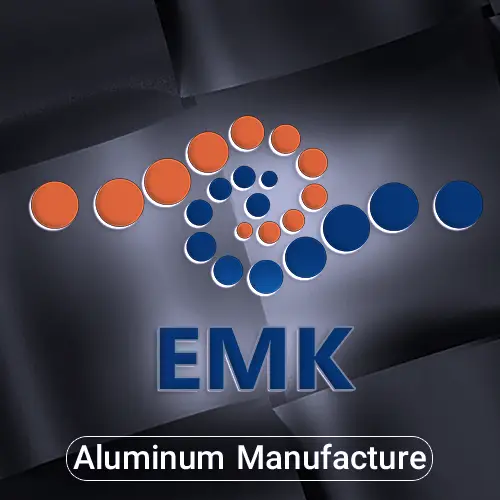
Contact us today to discuss your specific production requirements and learn more about how Elka Mehr Kimiya’s Aluminum Rods can elevate your steelmaking process.
Whatsapp Number:
+98-902-8000013
Sale Department Contact Number:
+98(41)36589245


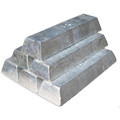

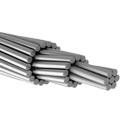
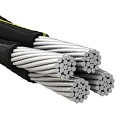
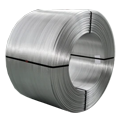










No comment